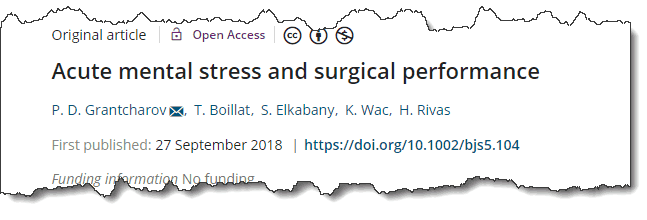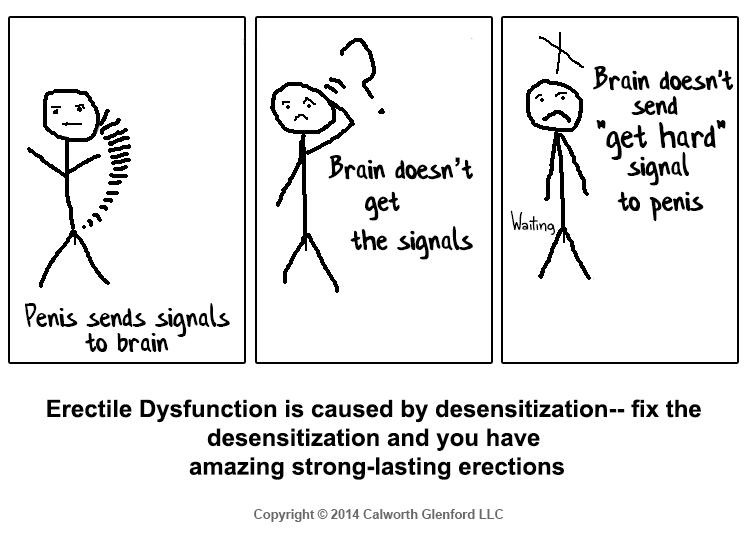
[cmamad id=”24956″ align=”center” tabid=”display-desktop” mobid=”display-desktop” stg=””]
This common pill may go down as the deadliest ever… Are you taking it?

—-Important Message from Our Sponsor—-
Controversial report shows “the deadliest drug ever” is used DAILY by over 9 million people
A Big Pharma insider says it’s so deadly that it’s already linked to OVER 106,000 deaths… And it’s probably in your medicine cabinet right now.
You MUST see this report to protect your life… And your loved ones.
Click here to skip right to deadly drug #1
———-
What’s killing America’s seniors?
In shows such as Grey’s Anatomy, the surgeons are always gossiping over the operating table instead of paying attention to what they’re doing.
It makes for good TV, but it’s not a good practice in real life.
That’s because this kind of “distracted” behavior can lead to A LOT of mistakes.
And I mean A LOT of mistakes.
This study was done on surgeons where they measured the surgeons’ heart rate and recorded video of the operations.
Then the scientists compared the two to see when mistakes were happening.
“A new study reveals that during stressful moments in the operating room, surgeons make up to 66% more mistakes on patients.”
That’s a very high risk when you are lying open on an operating table.
I’m pretty sure with numbers like that, that I want my surgeon to be undistracted and as unstressed as possible.
Let’s take a look at exactly how this works, and also how the same kind of situations can affect the work you do in your own life.

Stressors, distractions, and mistakes…
One of the challenges with surgeons making mistakes is that the consequences can be so severe.
A mistake by a surgeon can cause injury or death, while a mistake by someone in another profession may not have such severe consequences.
And mistakes can be caused by seemingly SMALL things that ratchet up short-term stress… Things like a loud noise or negative thoughts.
“Using a technology that captured the electrical activity of a surgeon’s heart, researchers found that during intervals of short-term stress – which can be triggered by a negative thought or a loud noise in the operating room – surgeons are much more prone to make mistakes that can cause bleeding, torn tissue, or burns.”
But here’s the thing…
Mistakes in any profession can lead to you not working at the top of your game and can cost you an opportunity for advancement… Or can even get you fired.
So understanding how mistakes happen and what you can do to make sure you are at the top of your game is important.
In the case of the surgeons, this short-term stress often took the form of distractions in the operating room (of which there were many).
P.D. Grantcharov, who did the study while working as a research assistant at the Stanford Medical Center, said this:
“I was surprised by that, as well as by the amount of distractions in the operating room…”
The distractions took lots of forms, from alarms going off to side conversations like in Grey’s Anatomy.
“Many machines have alarms that go off periodically, equipment malfunctions, side conversations take place, people walk in and out of the operating room – I could go on.”
Distractions that cause short-term stress (stress that you may not feel, but that affects your body) exist in every profession, everywhere…
From pings on Skype to constantly checking emails, we are distracted a lot.
Probably more now than ever in human history – just because of the all-pervasive technology.
And if distractions cause surgeons to make mistakes, then they are probably causing non-surgeons to make mistakes as well.
[cmamad id=”24958″ align=”center” tabid=”display-desktop” mobid=”display-desktop” stg=””]
So the question is: How do you deal with distractions to work at a peak performance level?
The easiest thing to do is turn off all your notifications.
We get pings all the time, from everywhere. Our phones, our tablets, and our computers are constantly vying for our attention.
By turning off all the notifications, we can eliminate a huge portion of that distraction and have more focused and stronger performance at work or at home.
Distraction doesn’t only cause surgeons to make mistakes.
It can affect every single one of us.
Eliminating distractions to focus on the task on hand is key to peak performance at work, at home, and even in your sex life.
It’s worth taking the time to eliminate as many distractions as possible because the rewards are amazing.
—-Important Message—-
My mind was racing, ready for the pleasures to come… But my penis was just limp…
I noticed it a few years ago… I would imagine sex that would go on for hours, different positions I would like, and so on…
But when playtime actually began, I couldn’t even get an erection.
My mind wanted it, but my body just didn’t respond.
That’s when I learned about the brain-penis connection…
My brain couldn’t send “get an erection” signals to my penis… The connection was cut somewhere.

This is called “desensitization” and it’s a problem that affects most men by the time they’re 50.
But luckily, after years of struggle, I found the solution to this problem… And I offer it to any man who may have a similar problem.
———-

- New study finds that surgeons under stress make more mistakes in the operating room
https://www.sciencedaily.com/releases/2018/12/181219191052.htm - Acute mental stress and surgical performance
https://onlinelibrary.wiley.com/doi/full/10.1002/bjs5.104
- Stress and your health
https://medlineplus.gov/ency/article/003211.htm - What is short-term (acute) stress?
https://www.webmd.com/balance/qa/what-is-shortterm-acute-stress
